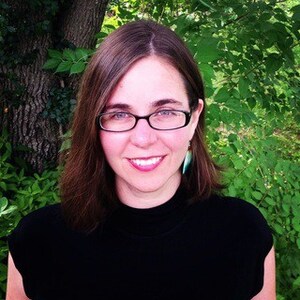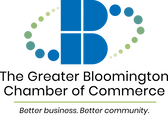 Why did you choose the field of education as a career? I was always interested in teaching. Every summer, I’d visit my grandmother, a public school teacher in Memphis. We’d go on walks together and talk about her students. Stories ranged from funny math lessons to student gifts, and words of wisdom from her teacher colleagues. However, as a child, I wanted to be a composer. I moved from Tucson, Arizona to IU to major in music composition. There, I volunteered to help Sandra Freund’s elementary students compose melodies. I LOVED it. After graduating, I found a day job as a paraprofessional at BHSS, supporting Jennifer Robinson in the community based classroom. From her, I learned the effectiveness of patience, consistency, and high expectations. I enrolled in the MAT certification program and was going to be a high school orchestra director. However, after seeing Brent Gault in action during an elementary music methods class, I was hooked on teaching elementary kids. Choose three words to describe your educational philosophy that guides you as an educator.
Security: Before instruction begins, I want my students to feel safe from judgement- free to make mistakes and be themselves. Students won’t take risks if they fear failure or rejection. Risk taking is inherent to meeting one’s musical potential. Representation: When I was a young, aspiring composer, I thought women never composed because I never heard music by women. Later, I learned entire bodies of work by underrepresented genders and peoples of color like Florence Price, Wendy Carlos, and Harry T. Burleigh. I want my students to see themselves in the music. Furthermore, we can use multiple genres to teach our standards: folk songs, hip hop, pop, and classical. High Expectations: Regardless of the school, I figure out what I want my students to know at the end of the year and work backwards from there. I can’t water lessons down. Students always know if we’re patronizing them, just as they know when we believe in them. What do you think is the greatest challenge facing students today? While the digital and social media has certainly increased musical exposure, tools, and accessibility, it’s also created unprecedented challenges. It’s proven to effect student attention spans, self image, and social connections. We can erase blemishes with filters and gauge self worth in “likes.” The power to edit videos adds pressure to post perfection, yet posts are made with the tap of a button. Information is easily shareable, whether it’s credible or not. We learn that sensationalism drives more traffic than facts. We can support students during these challenging times with social workers and school psychologists supporting SEL work and certified librarians and digital coaches supporting education on the use of social media and internet sources. Music, art, world language and PE teachers can give students opportunities to express themselves in judge-free zones. Classroom teachers can support students in healthy discourse and discord. What is one piece of advice you would give to a person entering into the education field during a unprecedented times? Give yourself a few minutes to vent each day and then, focus energy on what you can control: your talents, students’ names, equitable content, knowing your students’ talents, and preparing lessons. During the Pandemic, as music teachers, we’ve had to reimagine our professions. While teaching face to face, we’ve had to limit singing, keep distance, and not share instruments. But, students can use their own instruments. They can sing outside, use desks as drums, and mirror-image with classmates across the room. Our students in virtual classrooms can’t sing together in-sync, but they can sing alone or they can sing at the same time while muted. While this is the year to cut ourselves slack, it’s also time to learn from others: bringing artists into classroom virtually or downloading shared music lessons from social media. What is the most rewarding part of your profession? The most rewarding part of my job is its electrical nature. Working with others- teachers, families, students, leaders, and staff brings so much spark and energy. So much about education is electric: lightbulb “aha’s” from students making connections, the feel of a room of singers and dancers, the collaborative preparation of school functions (custodians, teachers, administrators and artists), the hustle and bustle before a show, families coming to see their children make music, kids holding a violin for the first time, collaborating with other amazing artists, and bringing books to life with tunes. Every person in our building has different gifts that all fit together like puzzle pieces, much like a circuit board. I like to keep moving and I love my Fairview and music teacher teams. It’s nonstop and I love it. I’m forever grateful to Kathy Heise for encouraging me to teach here. Anything else? Looking back on my years of teaching, one thing is abundantly clear to me. I have seldom done great things alone. It’s impossible to thank all that need to be thanked but anyone could name any teacher mine and I’d be able to tell you how they have impacted me.
0 Comments
Leave a Reply. |
Chamber NewsThis blog contains press releases, other news updates from the Chamber, news articles and radio interviews featuring interviews with the Chamber and team members, and much more! Categories
Categories
All
Archives
Archives
July 2024
|
|
Copyright The Greater Bloomington Chamber of Commerce. All Rights Reserved.


 RSS Feed
RSS Feed
